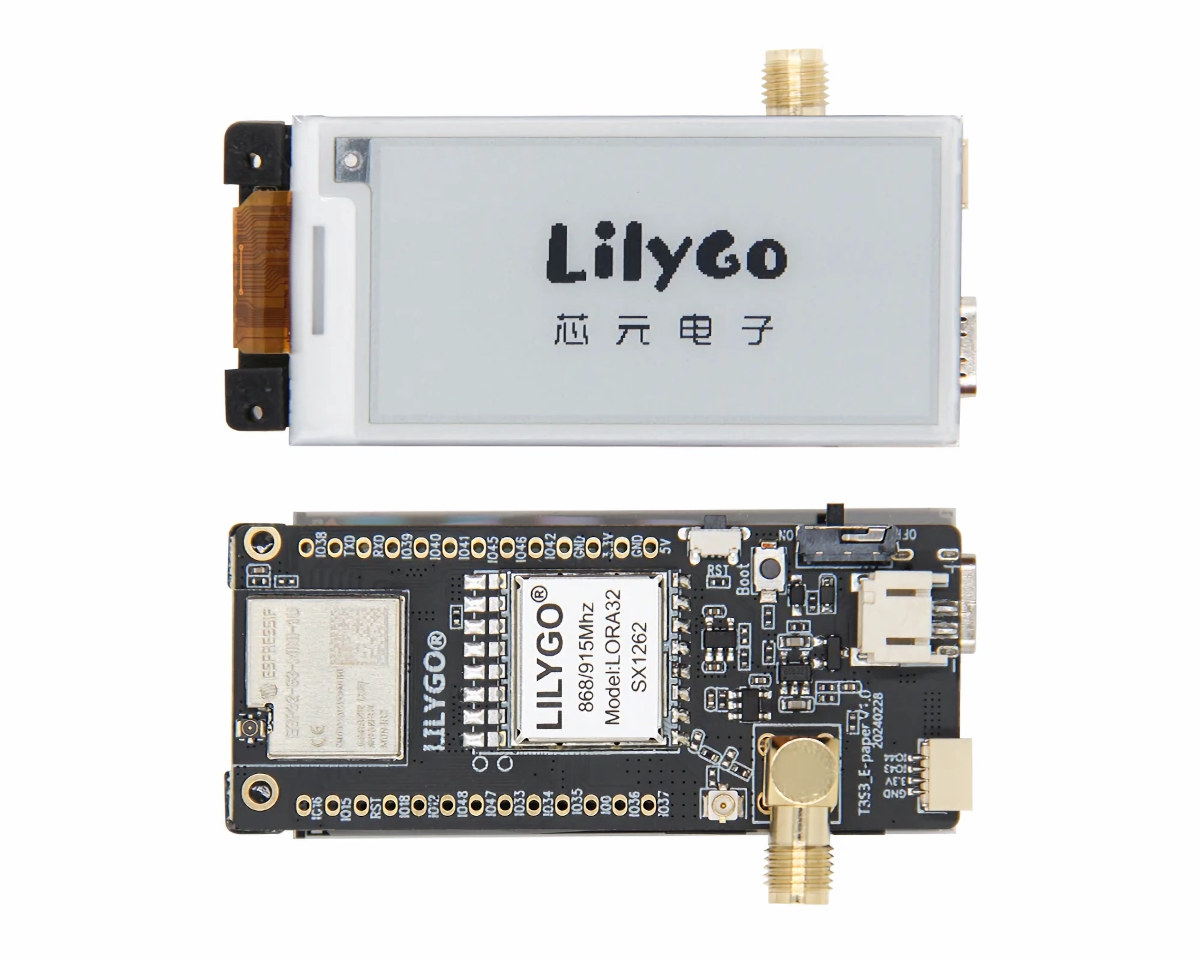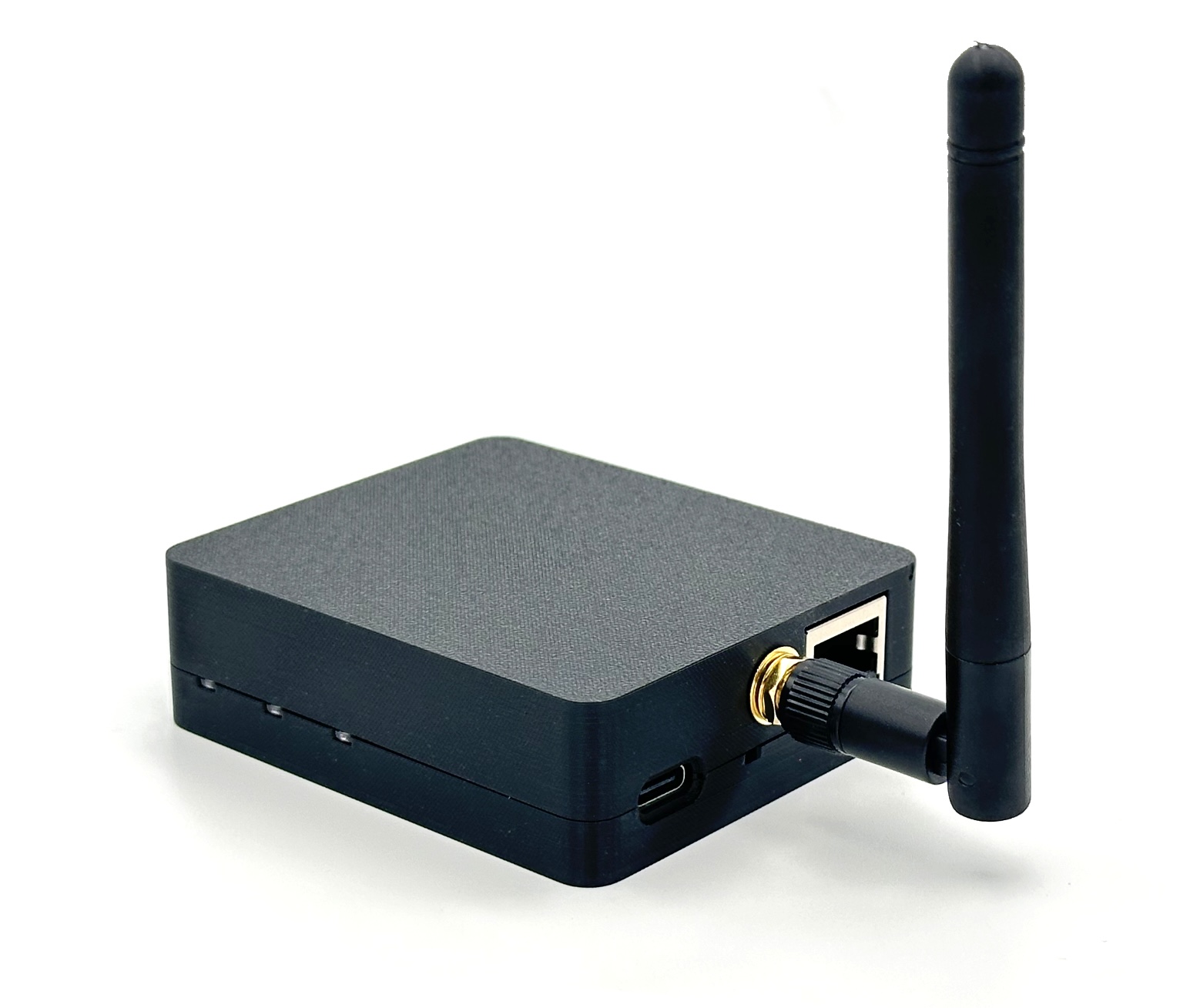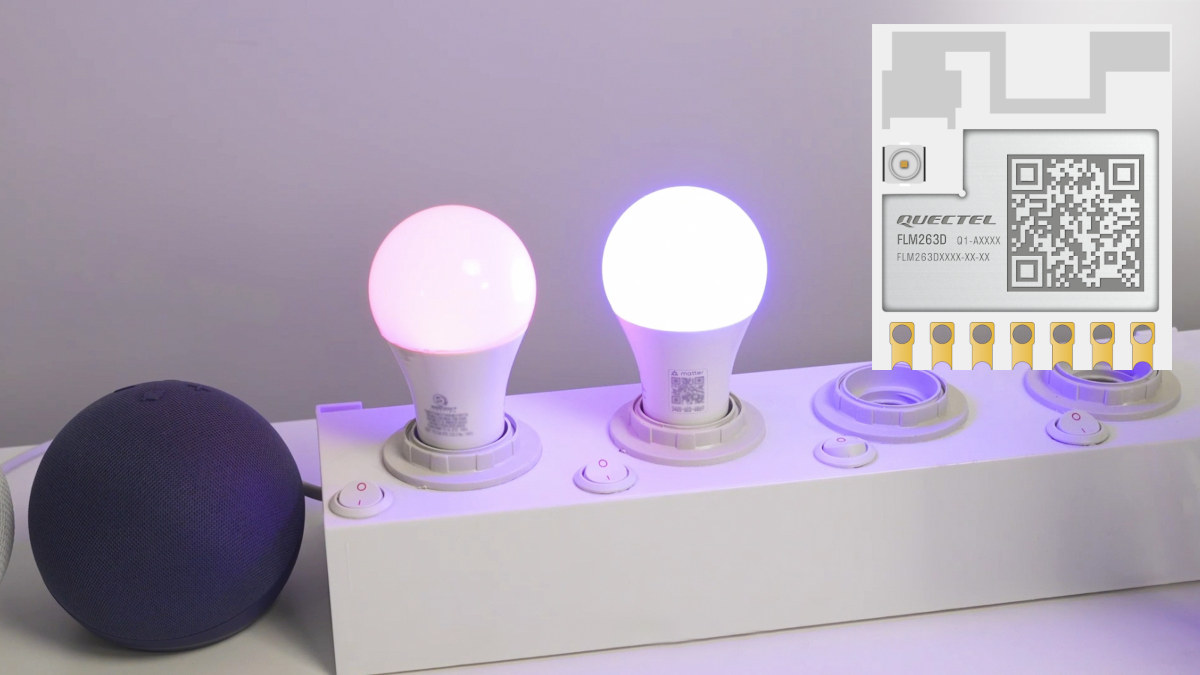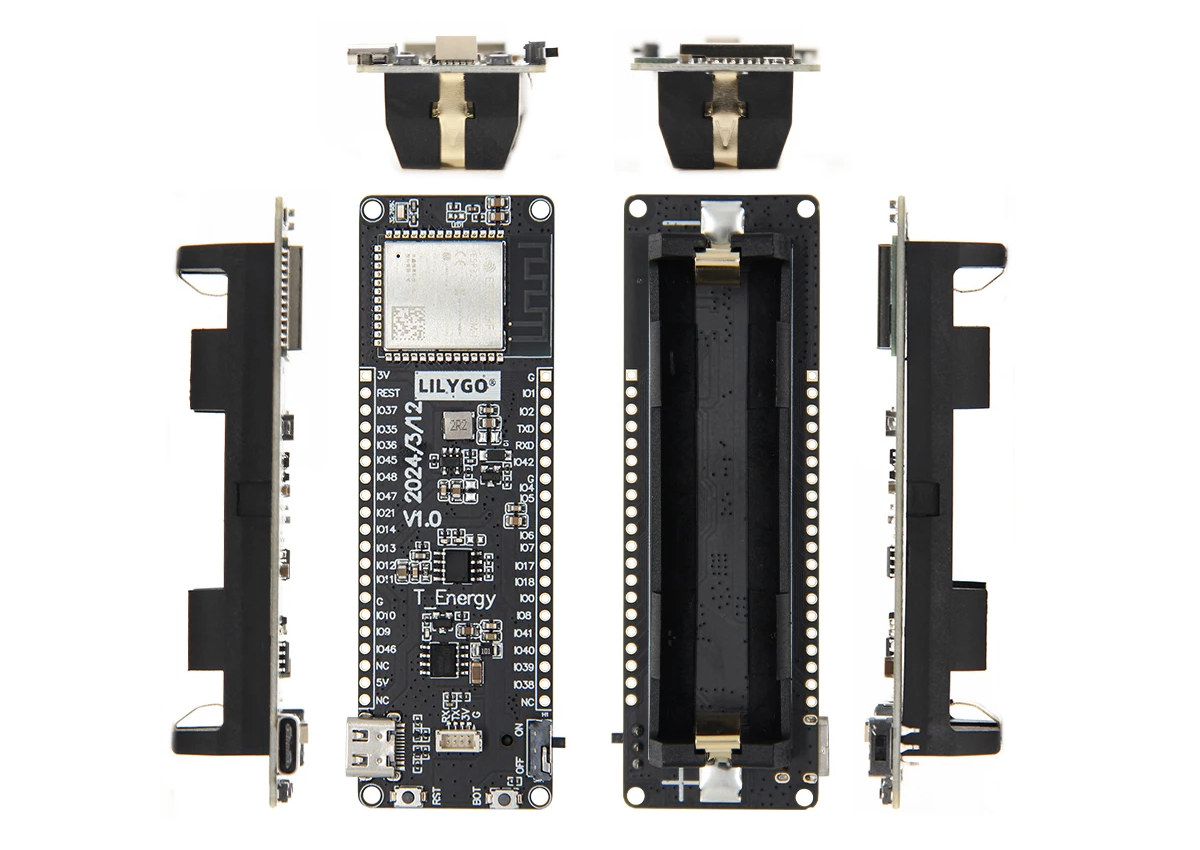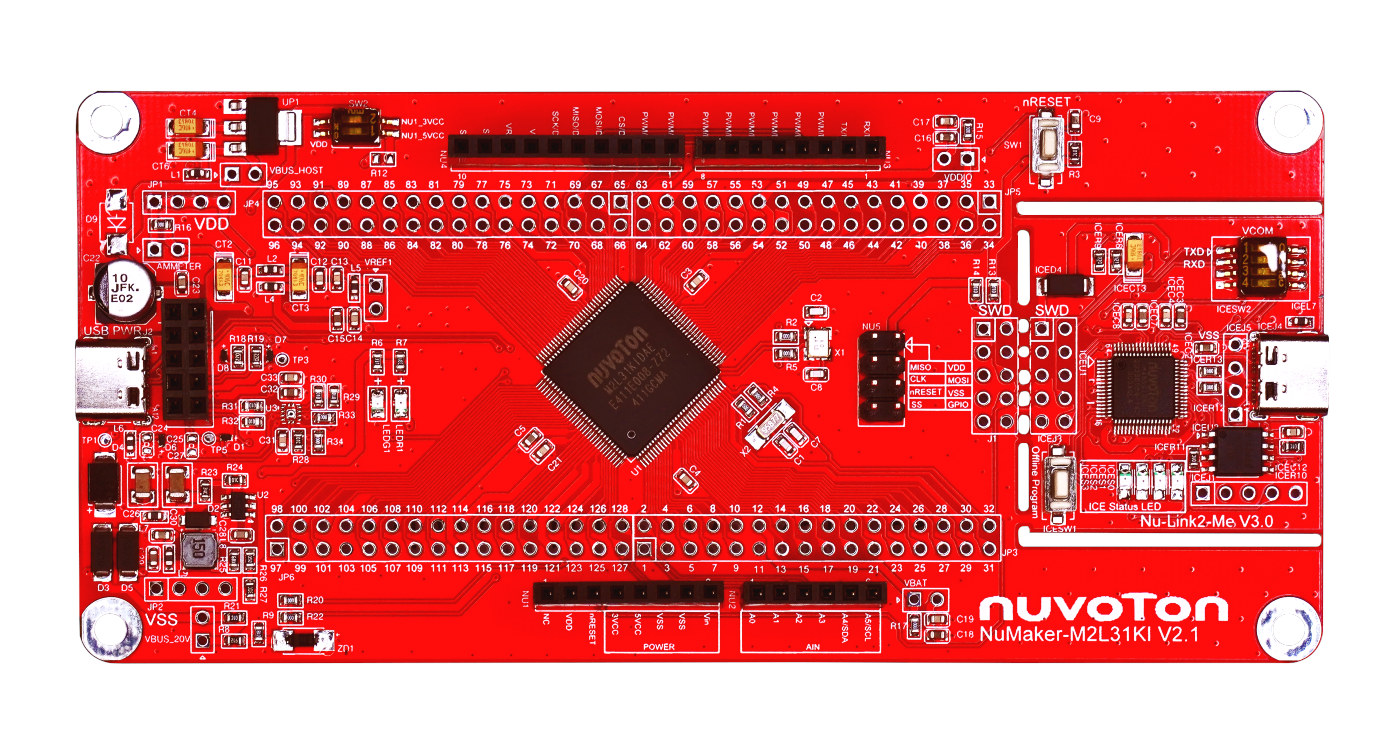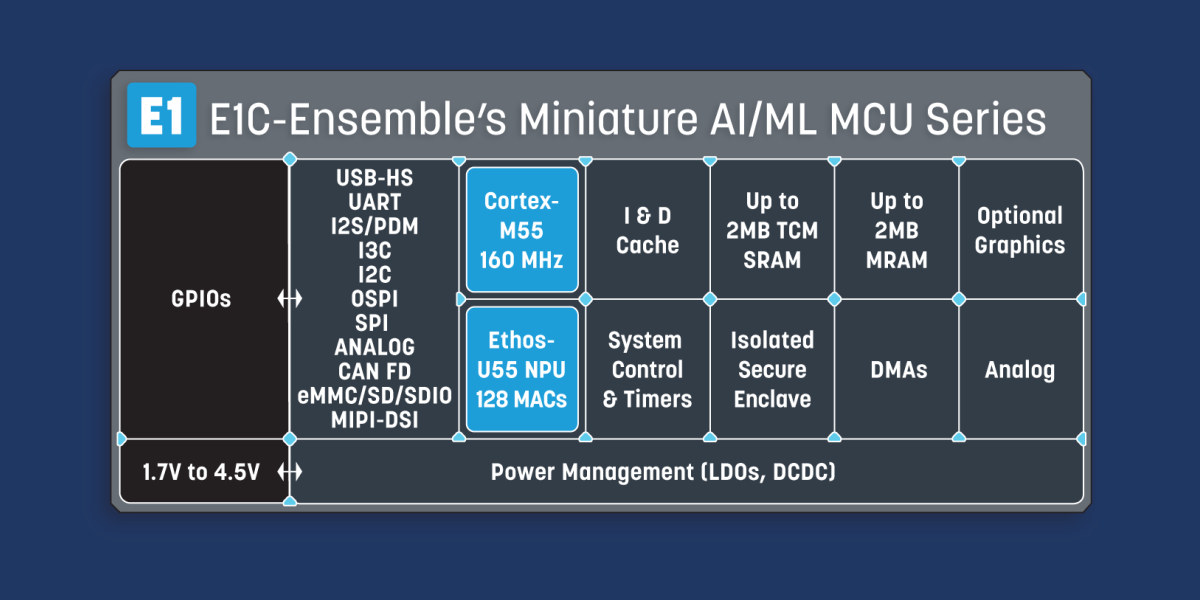The Blette Stick is a Bluetooth 5.0 LE USB-C dongle designed to be attached to an Android smartphone in order to provide off-grid messaging and GPS coordinates sharing capabilities with a range of up to 1.1km in case WiFi and cellular networks are down. CNX Software readers may also be familiar with Meshtastic devices relying on WiFi to connect to the smartphone with Bluetooth and to other nodes using LoRaWAN to enable off-grid messaging while trekking or during emergencies. The Blettle Stick does something similar to the Meshtastic project but with Bluetooth LE long-range communication instead of Bluetooth+LoRaWAN. While the range will be shorter and limited to around 1km (line-of-sight), the plug-and-play design will make it easier to use for typical users who are not technically savvy. Blettle Stick specifications: SoC – Nordic Semi nRF52 Bluetooth 5.0 LE microcontroller (exact part number not specified, possibly nRF52840) Wireless – Bluetooth 5.0 […]
LILYGO T3S3 E-Paper combines ESP32-S3 WiFi & BLE SoC with LoRa module, 2.13-inch e-Paper display
LILYGO T3S3 E-Paper is an ESP32-S3 WiFi and Bluetooth LE development board with a 2.13-inch e-Paper display and an SX1262 LoRa module that should make it suitable for off-grid messsaging even under sunlight. LILYGO has made some ESP32-S3 boards with an e-Paper display and some ESP32-S3 boards with a LoRa module, but unless I’m mistaken, the T3S3 E-Paper is the first board from LILYGO that combines ESP32-S3 SoC with e-Paper display and a LoRa module. It builds upon the earlier LILYGO T3S3 board with a 0.96-inch OLED. LILYGO T3S3 E-Paper specifications: ESP32-S3-WROOM-1U wireless module SoC – ESP32-S3FH4R2 dual-core Tensilica LX7 microcontroller @ up to 240 MHz with 2.4 GHz 802.11n WiFi 4 and Bluetooth 5.0 LE connectivity Memory – 2MB PSRAM Storage – 4MB SPI flash IPEX antenna connector Storage – MicroSD card slot Display – 2.13-inch e-Paper display (DEPG0213BN) with 250×122 resolution; size: 48.55 x 23.70mm Wireless 2.4 GHz […]
Renesas SLG7EVBFORGE FPGA dev board is built around ForgeFPGA SLG47910V low-density FPGA
Renesas SLG7EVBFORGE FPGA dev board, built around SLG47910V is Renesas’ first low-density FPGA in the ForgeFPGA family. The FPGA includes 1120 LUTs, 1120 flip-flops, 5kb of distributed memory, 32kb of block RAM, and a 50 MHz on-chip oscillator with a phase-locked loop (PLL). With robust features, low power consumption, and affordable pricing this FPGA can be used in applications in sensor data aggregation, consumer electronics, and portable computing devices. The SLG47910V FPGA gets connected to a ZIF socket to the development board, this design choice puts out a clear sign that upcoming Forge family FPGAs will support this dev board. Additionally, it features Pmod connectors and configurable power sources. The dev board can be programmed via OTP Non-Volatile Memory or SPI interface and additional features get managed through Renesas’ Go Configure Software Hub. Previously we have written about similar low-power low-cost FPGA boards like the Sipeed Tang Mega 138K, the […]
Zigbee Coordinator CC2652P7 1.0 runs open-source firmware, works with Zigbee2MQTT, Home Assistant, and ioBroker
The cod.m Zigbee Coordinator 1.0 (CZC 1.0) is a hybrid ZigBee coordinator that can be used to connect devices over a network (Ethernet/Wi-Fi) and USB. The ZigBee Coordinator version 1.0 is an upgrade of version 0.2 released in 2022. The CZC 1.0 replaces the Texas Instruments CC2652P2 chip with the much more powerful CC2652P7 chip, uses an ESP32-WROOM-32E module instead of the USR-K6 chip, and adds compatibility with Home Assistant (ZHA integration). It can create a Zigbee network and pair Zigbee devices over Ethernet, WiFi, or Serial (USB). It features the same Texas Instruments CC2652P7 chip as the SMLIGHT line of Zigbee Ethernet/WiFi/USB coordinators and USB dongles. There are two models of the CZC 1.0: a Power over Ethernet model and a model that can only be powered via USB-C. cod.m Zigbee Coordinator specifications: Zigbee SoC – Texas Instruments CC2652P7 Arm Cortex-M4F microcontroller @ 48 MHz with 704 KB flash, […]
Quectel FLM263D 2.4 GHz WiFi 6 and BLE 5.2 RISC-V module supports Amazon Alexa Connect Kit (ACK) SDK for Matter
Quectel Wireless FLM263D is a standalone WiFi 6 and Bluetooth 5.2 LE module with a 320 MHz RISC-V microcontroller that supports Alexa Connect Kit (ACK) SDK for Matter for connectivity with Amazon Alexa, Google Home, Samsung SmartThings, Apple HomeKit, and other Matter-compliant Smart Home devices. The module also implements security standards such as secure boot and Mbed TLS encryption. The FLM263D offers certifications such as Works with Alexa (WWA) and supports features such as Matter Simple Setup (MSS) that allows zero-touch setup of Matter-compliant smart home devices through Alexa. Quectel FLM263D specifications: MCU – RISC-V wireless microcontroller up to 320 MHz, with 512KB SRAM and 4MB flash (likely Beken BK7235) Wi-Fi 6 & BLE 5.2 WLAN Protocol – IEEE 802.11b/g/n/ax Wi-Fi Frequency Band – 2.4 GHz Wi-Fi Modulation Mode – CCK, BPSK, QPSK, 16QAM, 64QAM Wi-Fi Operating Mode – AP, STA, STA + AP WiFi Rx sensitivity – Up to […]
LILYGO T-Energy-S3 ESP32-S3 board offers 18650 battery holder, two 20-pin GPIO headers
LILYGO T-Energy-S3 is an ESP32-S3 WiFi and Bluetooth IoT board with an 18650 battery holder, a USB-C port for charging and programming, and plenty of I/Os thanks to two 20-pin GPIO headers and a Qwiic connector. We’ve already covered a large number of ESP32-S3 boards and products, including some designs for battery operation such as the Tokay Lite AI camera board, LILYGO’s T7-S3 board, and Smart Bee Designs’ Bee S3 board among others. But that usually means providing a 2-pin connector and charging circuitry to connect a LiPo battery, but the T-Energy-S3 ESP32-S3 board works directly with an off-the-shelf 18650 rechargeable Lithium battery. T-Energy-S3 specifications: Wireless Module – ESP32-S3-WROOM-1-N16R8 Espressif Systems ESP32-S3R8 – Dual-core Tensilica LX7 @ up to 240 MHz with vector instructions for AI acceleration, 512KB RAM, 8MB PSRAM Storage – 16 MB flash Wireless – 2.4 GHz WiFi 4 and Bluetooth PCB antenna USB – 1x USB […]
Nuvoton NuMicro M2L31 Arm Cortex-M23 MCU embeds up to 512KB high-durability ReRAM, 168KB SRAM
Nuvoton NuMicro M2L31 is a family of Arm Cortex-M23 microcontrollers clocked up to 72 MHz, equipped with 64KB to 512KB high-durability ReRAM (Resistive Random-Access Memory) with fast write speeds, 40KB to 168KB SRAM. The microcontroller supports 1.71V to 3.6V operating voltage, can operate in the -40°C to 105°C temperature range, and offers a wide range of interfaces available through packages as small as WLCSP 25 (2.5 x 2.5 mm) and up to LQFP128 (14 x 14 mm). Arm introduced the Cortex-M23 core in 2016 together with the Arm Cortex-M33 core, but while the latter is widely integrated in a large range of designs, we’ve seen fewer Cortex-M23 microcontrollers with some examples being Microchip SAML10/L11 (2018) and more recently, the Renesas RA0 family. Nuvoton adds another option with the Numicro M2L31 that also happens to integrates ReRAM non-volatile memory. Key Features: MCU core – Arm Cortex-M23 core running up to 72 […]
Alif Semi Ensemble E1C is an entry-level Cortex-M55 MCU with a 46 GOPS Ethos-U55 AI/ML accelerator
Alif Semi Ensemble E1C is an entry-level addition to the company’s Ensemble Cortex-A32M35 processors and microcontrollers with Ethos-U55 microNPUs that targets the very edge with a 160 MHz Cortex-M55 microcontroller and a 46 GOPS Ethos-U55 NPU. The Ensemble E1C is virtually the same as the E1 microcontroller but with less memory (2MB SRAM) and storage (up to 1.9MB non-volatile MRAM), and offered in more compact packages with 64, 90, or 120 pins as small as 3.9 x 3.9mm. Alif Semi Ensemble E1C specifications: CPU – Arm Cortex-M55 core up to 160 MHz with Helium Vector Processing Extension, 16KB Instruction and Data caches, Armv8.1-M ISA with Arm TrustZone; 4.37 CoreMark/MHz GPU – Optional D/AVE 2D Graphics Processing Unit MicroNPU – 1x Arm Ethos-U55 Neural Processing Unit with 128 MAC; up to 46 GOPS On-chip application memory Up to 1.9 MB MRAM Non-Volatile Memory Up to 2MB Zero Wait-State SRAM with optional […]



